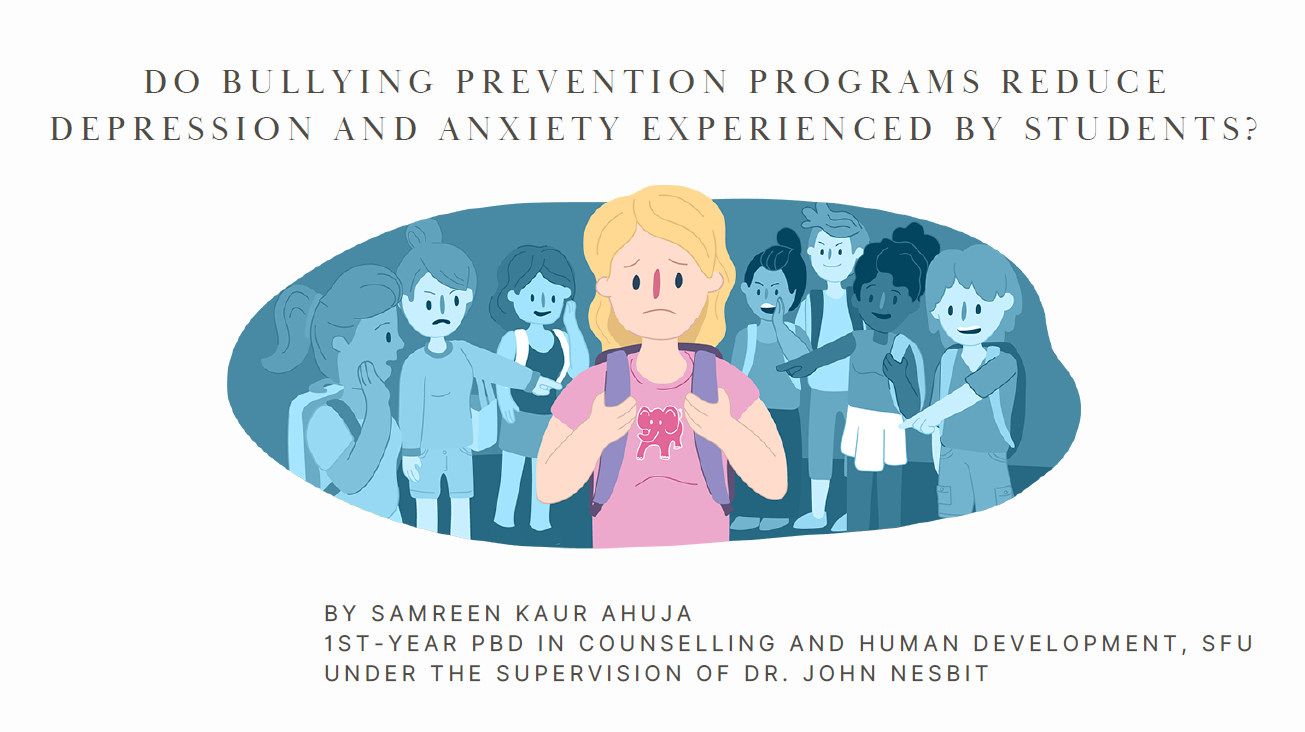Do Bullying Prevention Programs Reduce Depression and Anxiety Experienced by Students?
Main Article Content
Abstract
Bullying prevention interventions have been devised to reduce peer victimization and its negative effects on victims. Many primary research studies have examined the effectiveness of these programs, including some which investigated whether programs enhanced the self-esteem and overall mental well-being of students who participate in the programs, including those who have and have not been victimized. Several systematic reviews (analyses of secondary data) have assessed the overall effectiveness of these interventions. However, to our knowledge, no systematic reviews analyzed the effect of anti-bullying programs on depression and anxiety among program participants. The proposed study is the first systematic review to develop a comprehensive portrayal of the effect of bullying prevention programs on mental health, particularly depression and anxiety.
Our research will be a meta-analysis of the effects of bullying prevention programs on the depression and anxiety of participants. Studies will be selected by conducting literature searches on electronic databases such as ERIC, PsyhInfo, PsycARTICLES, Pubmed, Web of Science, and Google Scholar. Only randomized clinical trials and pretest and posttest studies measuring the effect of these programs on the participants will be included. A single effect size type, likely standardized mean difference, will be chosen and any different effect size types used in the studies will be converted to that type. All primary studies which meet the selection criteria will be coded for effect size and several other characteristics (e.g., age of participants) for potential use as moderating variables. The results will return a weighted-mean effect size for all relevant studies.
Article Details

This work is licensed under a Creative Commons Attribution-NonCommercial-NoDerivatives 4.0 International License.

